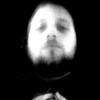





Wikipedia Article on Operation Mockingbird, Part 1
Posted by
Luminosity
,
17 October 2014
·
789 views
mockingbird
Part I, as it is on October 16, 2014
________________________________________
Operation Mockingbird
From Wikipedia, the free encyclopedia
Operation Mockingbird was a secret campaign by the United States Central Intelligence Agency (CIA) to influence media. Begun in the 1950s, it was initially organized by Cord Meyer and Allen W. Dulles, and was later led by Frank Wisner after Dulles became the head of the CIA. The organization recruited leading American journalists into a network to help present the CIA's views, and funded some student and cultural organizations, and magazines as fronts. As it developed, it also worked to influence foreign media and political campaigns, in addition to activities by other operating units of the CIA.
In addition to earlier exposés of CIA activities in foreign affairs, in 1966 Ramparts magazine published an article revealing that the National Student Association was funded by the CIA. The United States Congress investigated, and published its report in 1976. Other accounts were also published. The media operation was first called Mockingbird in Deborah Davis's 1979 book, Katharine the Great: Katharine Graham and her Washington Post Empire.[1]
In 1948, Frank Wisner was appointed director of the Office of Special Projects (OSP). Soon afterwards OSP was renamed the Office of Policy Coordination (OPC). This became the covert action branch of the Central Intelligence Agency. Wisner was told to create an organization that concentrated on "propaganda, economic warfare; preventive direct action, including sabotage, anti-sabotage, demolition and evacuation measures; subversion against hostile states, including assistance to underground resistance groups, and support of indigenous anti-Communist elements in threatened countries of the free world."[2] Later that year Wisner established Mockingbird, a program to influence foreign media. Wisner recruited Philip Graham from The Washington Post to run the project within the industry. According to Deborah Davis in Katharine the Great; "By the early 1950s, Wisner 'owned' respected members of The New York Times, Newsweek, CBS and other communications vehicles."[3]
In 1951, Allen W. Dulles persuaded Cord Meyer to join the CIA. However, there is evidence that he was recruited several years earlier and had been spying on the liberal internationalist organizations he had been a member of in the late 1940s.[4] According to Deborah Davis, Meyer became Mockingbird's "principal operative."[5]"I’m proud they asked me and proud to have done it" - Joseph Alsop [6]
After 1953, the network was overseen by Allen W. Dulles, director of the CIA. By this time, Operation Mockingbird had a major influence over 25 newspapers and wire agencies. The usual methodology was placing reports developed from intelligence provided by the CIA to witting or unwitting reporters. Those reports would then be repeated or cited by the preceding reporters which in turn would then be cited throughout the media wire services. These networks were run by people with well-known liberal but pro-American big business and anti-Soviet views such as William Paley (CBS), Henry Luce (Time and Life Magazine), Arthur Hays Sulzberger (New York Times), Alfred Friendly (managing editor of the Washington Post), Jerry O'Leary (Washington Star), Hal Hendrix (Miami News), Barry Bingham, Sr. (Louisville Courier-Journal), James Copley (Copley News Services) and Joseph Harrison (Christian Science Monitor).[7]
The Office of Policy Coordination (OPC) was funded by siphoning off funds intended for the Marshall Plan. Some of this money was used to bribe journalists and publishers. Frank Wisner was constantly looking for ways to help convince the public of the dangers of Soviet communism. In 1954, Wisner arranged for the funding of the Hollywood production of Animal Farm, the animated allegory based on the book written by George Orwell.[8]
According to Alex Constantine (Mockingbird: The Subversion of the Free Press by the CIA), in the 1950s, "some 3,000 salaried and contract CIA employees were eventually engaged in propaganda efforts". Wisner was able to constrain newspapers from reporting about certain events, including the CIA plots to overthrow the governments of Iran (see: Operation Ajax) and Guatemala (see: Operation PBSUCCESS).[9]
Thomas Braden, head of the International Organizations Division (IOD), played an important role in Operation Mockingbird. Many years later he revealed his role in these events: "If the director of CIA wanted to extend a present, say, to someone in Europe—a Labour leader—suppose he just thought, This man can use fifty thousand dollars, he's working well and doing a good job - he could hand it to him and never have to account to anybody... There was simply no limit to the money it could spend and no limit to the people it could hire and no limit to the activities it could decide were necessary to conduct the war—the secret war... It was a multinational. Maybe it was one of the first. Journalists were a target, labor unions a particular target—that was one of the activities in which the communists spent the most money."[10] Directorate for Plans[edit]
In August 1952, the Office of Policy Coordination which dealt with covert-action such as paramilitary or psychological influence operations, and the Office of Special Operations which dealt with espionage and counter-espionage, were merged under the Deputy Director for Plans (DDP), Allen W. Dulles. When Dulles became head of the CIA in 1953, Frank Wisner became head of this new organization and Richard Helms became his chief of operations. Mockingbird became the responsibility of the DDP.[11]
J. Edgar Hoover became jealous of the CIA's growing power. Institutionally, the organizations were very different, with the CIA holding a more politically diverse group in contrast to the more conservative FBI. This was reflected in Hoover's description of the OPC as "Wisner's gang of weirdos". Hoover began having investigations done into Wisner's people. He found that some of them had been active in left-wing politics in the 1930s. This information was passed to Senator Joseph McCarthy who started making attacks on members of the OPC. Hoover also gave McCarthy details of an affair that Frank Wisner had with Princess Caradja in Romania during the war. Hoover claimed that Caradja was a Soviet agent.[12]
McCarthy, as part of his campaign against government, began accusing other senior members of the CIA as being security risks. McCarthy claimed that the CIA was a "sinkhole of communists", and said he would root out a hundred of them. One of his first targets was Cord Meyer, who was still working for Operation Mockingbird. In August 1953, Richard Helms, Wisner's deputy at the OPC, told Meyer that McCarthy had accused him of being a communist. The Federal Bureau of Investigation said it was unwilling to give Meyer "security clearance," without referring to any evidence against him. Allen W. Dulles and Frank Wisner both came to his defense and refused to permit an FBI interrogation of Meyer.[13]
With the network in authority in the CIA threatened, Wisner was directed to unleash Mockingbird on McCarthy. Drew Pearson, Joe Alsop, Jack Anderson, Walter Lippmann and Ed Murrow all engaged in intensely negative coverage of McCarthy. According to Jack Anderson, his political reputation was permanently damaged by the press coverage orchestrated by Wisner.[14] Guatemala[edit]
Mockingbird was very active during the overthrow of President Jacobo Arbenz Guzmán in Guatemala during Operation PBSUCCESS. Dulles restrained certain journalists from traveling to Guatemala, including Sydney Gruson of the New York Times.[15] As the CIA's wealth and power increased, its aggressive focus toward the Soviet Union soon began not only heating up the Cold War but also in disrupting relations with America's European allies. They considered rising third-worldliberationist movements as potential threats to their political systems.
Consequently, even in the wake of Secretary of State John Foster Dulles's 1952 presidential campaign pledge to "roll back the Iron Curtain," American covert action operations came under scrutiny almost as soon as Dwight Eisenhower was inaugurated in 1953. He soon set up an evaluation operation called Solarium, which had three committees playing analytical games to see which plans of action should be continued. In 1955, President Eisenhower established the 5412 Committee in order to keep more of a check on the CIA's covert activities. The committee (also called the Special Group) included the CIA director, the national security adviser, and the deputy secretaries at State and Defense. They were to determine whether covert actions were "proper" and in the national interest. Richard B. Russell, chairman of the U.S. Senate Armed Services Committee was also included in the group. As Allen W. Dulles was later to admit, because of "plausible deniability," CIA-planned covert actions were not referred to the 5412 Committee for review.
Ultimately, Eisenhower became concerned that CIA covert activities were being poorly coordinated with American foreign policy. He thought they may have expressed senior corporate interests of upper-class families of the North-Eastern Establishment. In 1956 he appointed David K. E. Bruce as a member of the President's Board of Consultants on Foreign Intelligence Activities (PBCFIA). Eisenhower asked Bruce to write a report on the CIA. It was presented to Eisenhower on 20 December 1956. Bruce argued that the CIA's covert actions were "responsible in great measure for stirring up the turmoil and raising the doubts about us that exists in many countries in the world today."[16]
Bruce was also highly critical of Mockingbird. He argued: "what right have we to go barging around in other countries buying newspapers and handing money to opposition parties or supporting a candidate for this, that, or the other office."[16]
________________________________________
Operation Mockingbird
From Wikipedia, the free encyclopedia
Operation Mockingbird was a secret campaign by the United States Central Intelligence Agency (CIA) to influence media. Begun in the 1950s, it was initially organized by Cord Meyer and Allen W. Dulles, and was later led by Frank Wisner after Dulles became the head of the CIA. The organization recruited leading American journalists into a network to help present the CIA's views, and funded some student and cultural organizations, and magazines as fronts. As it developed, it also worked to influence foreign media and political campaigns, in addition to activities by other operating units of the CIA.
In addition to earlier exposés of CIA activities in foreign affairs, in 1966 Ramparts magazine published an article revealing that the National Student Association was funded by the CIA. The United States Congress investigated, and published its report in 1976. Other accounts were also published. The media operation was first called Mockingbird in Deborah Davis's 1979 book, Katharine the Great: Katharine Graham and her Washington Post Empire.[1]
Contents [hide]
History[edit]In 1948, Frank Wisner was appointed director of the Office of Special Projects (OSP). Soon afterwards OSP was renamed the Office of Policy Coordination (OPC). This became the covert action branch of the Central Intelligence Agency. Wisner was told to create an organization that concentrated on "propaganda, economic warfare; preventive direct action, including sabotage, anti-sabotage, demolition and evacuation measures; subversion against hostile states, including assistance to underground resistance groups, and support of indigenous anti-Communist elements in threatened countries of the free world."[2] Later that year Wisner established Mockingbird, a program to influence foreign media. Wisner recruited Philip Graham from The Washington Post to run the project within the industry. According to Deborah Davis in Katharine the Great; "By the early 1950s, Wisner 'owned' respected members of The New York Times, Newsweek, CBS and other communications vehicles."[3]
In 1951, Allen W. Dulles persuaded Cord Meyer to join the CIA. However, there is evidence that he was recruited several years earlier and had been spying on the liberal internationalist organizations he had been a member of in the late 1940s.[4] According to Deborah Davis, Meyer became Mockingbird's "principal operative."[5]"I’m proud they asked me and proud to have done it" - Joseph Alsop [6]
After 1953, the network was overseen by Allen W. Dulles, director of the CIA. By this time, Operation Mockingbird had a major influence over 25 newspapers and wire agencies. The usual methodology was placing reports developed from intelligence provided by the CIA to witting or unwitting reporters. Those reports would then be repeated or cited by the preceding reporters which in turn would then be cited throughout the media wire services. These networks were run by people with well-known liberal but pro-American big business and anti-Soviet views such as William Paley (CBS), Henry Luce (Time and Life Magazine), Arthur Hays Sulzberger (New York Times), Alfred Friendly (managing editor of the Washington Post), Jerry O'Leary (Washington Star), Hal Hendrix (Miami News), Barry Bingham, Sr. (Louisville Courier-Journal), James Copley (Copley News Services) and Joseph Harrison (Christian Science Monitor).[7]
The Office of Policy Coordination (OPC) was funded by siphoning off funds intended for the Marshall Plan. Some of this money was used to bribe journalists and publishers. Frank Wisner was constantly looking for ways to help convince the public of the dangers of Soviet communism. In 1954, Wisner arranged for the funding of the Hollywood production of Animal Farm, the animated allegory based on the book written by George Orwell.[8]
According to Alex Constantine (Mockingbird: The Subversion of the Free Press by the CIA), in the 1950s, "some 3,000 salaried and contract CIA employees were eventually engaged in propaganda efforts". Wisner was able to constrain newspapers from reporting about certain events, including the CIA plots to overthrow the governments of Iran (see: Operation Ajax) and Guatemala (see: Operation PBSUCCESS).[9]
Thomas Braden, head of the International Organizations Division (IOD), played an important role in Operation Mockingbird. Many years later he revealed his role in these events: "If the director of CIA wanted to extend a present, say, to someone in Europe—a Labour leader—suppose he just thought, This man can use fifty thousand dollars, he's working well and doing a good job - he could hand it to him and never have to account to anybody... There was simply no limit to the money it could spend and no limit to the people it could hire and no limit to the activities it could decide were necessary to conduct the war—the secret war... It was a multinational. Maybe it was one of the first. Journalists were a target, labor unions a particular target—that was one of the activities in which the communists spent the most money."[10] Directorate for Plans[edit]
In August 1952, the Office of Policy Coordination which dealt with covert-action such as paramilitary or psychological influence operations, and the Office of Special Operations which dealt with espionage and counter-espionage, were merged under the Deputy Director for Plans (DDP), Allen W. Dulles. When Dulles became head of the CIA in 1953, Frank Wisner became head of this new organization and Richard Helms became his chief of operations. Mockingbird became the responsibility of the DDP.[11]
J. Edgar Hoover became jealous of the CIA's growing power. Institutionally, the organizations were very different, with the CIA holding a more politically diverse group in contrast to the more conservative FBI. This was reflected in Hoover's description of the OPC as "Wisner's gang of weirdos". Hoover began having investigations done into Wisner's people. He found that some of them had been active in left-wing politics in the 1930s. This information was passed to Senator Joseph McCarthy who started making attacks on members of the OPC. Hoover also gave McCarthy details of an affair that Frank Wisner had with Princess Caradja in Romania during the war. Hoover claimed that Caradja was a Soviet agent.[12]
McCarthy, as part of his campaign against government, began accusing other senior members of the CIA as being security risks. McCarthy claimed that the CIA was a "sinkhole of communists", and said he would root out a hundred of them. One of his first targets was Cord Meyer, who was still working for Operation Mockingbird. In August 1953, Richard Helms, Wisner's deputy at the OPC, told Meyer that McCarthy had accused him of being a communist. The Federal Bureau of Investigation said it was unwilling to give Meyer "security clearance," without referring to any evidence against him. Allen W. Dulles and Frank Wisner both came to his defense and refused to permit an FBI interrogation of Meyer.[13]
With the network in authority in the CIA threatened, Wisner was directed to unleash Mockingbird on McCarthy. Drew Pearson, Joe Alsop, Jack Anderson, Walter Lippmann and Ed Murrow all engaged in intensely negative coverage of McCarthy. According to Jack Anderson, his political reputation was permanently damaged by the press coverage orchestrated by Wisner.[14] Guatemala[edit]
Mockingbird was very active during the overthrow of President Jacobo Arbenz Guzmán in Guatemala during Operation PBSUCCESS. Dulles restrained certain journalists from traveling to Guatemala, including Sydney Gruson of the New York Times.[15] As the CIA's wealth and power increased, its aggressive focus toward the Soviet Union soon began not only heating up the Cold War but also in disrupting relations with America's European allies. They considered rising third-worldliberationist movements as potential threats to their political systems.
Consequently, even in the wake of Secretary of State John Foster Dulles's 1952 presidential campaign pledge to "roll back the Iron Curtain," American covert action operations came under scrutiny almost as soon as Dwight Eisenhower was inaugurated in 1953. He soon set up an evaluation operation called Solarium, which had three committees playing analytical games to see which plans of action should be continued. In 1955, President Eisenhower established the 5412 Committee in order to keep more of a check on the CIA's covert activities. The committee (also called the Special Group) included the CIA director, the national security adviser, and the deputy secretaries at State and Defense. They were to determine whether covert actions were "proper" and in the national interest. Richard B. Russell, chairman of the U.S. Senate Armed Services Committee was also included in the group. As Allen W. Dulles was later to admit, because of "plausible deniability," CIA-planned covert actions were not referred to the 5412 Committee for review.
Ultimately, Eisenhower became concerned that CIA covert activities were being poorly coordinated with American foreign policy. He thought they may have expressed senior corporate interests of upper-class families of the North-Eastern Establishment. In 1956 he appointed David K. E. Bruce as a member of the President's Board of Consultants on Foreign Intelligence Activities (PBCFIA). Eisenhower asked Bruce to write a report on the CIA. It was presented to Eisenhower on 20 December 1956. Bruce argued that the CIA's covert actions were "responsible in great measure for stirring up the turmoil and raising the doubts about us that exists in many countries in the world today."[16]
Bruce was also highly critical of Mockingbird. He argued: "what right have we to go barging around in other countries buying newspapers and handing money to opposition parties or supporting a candidate for this, that, or the other office."[16]




















































